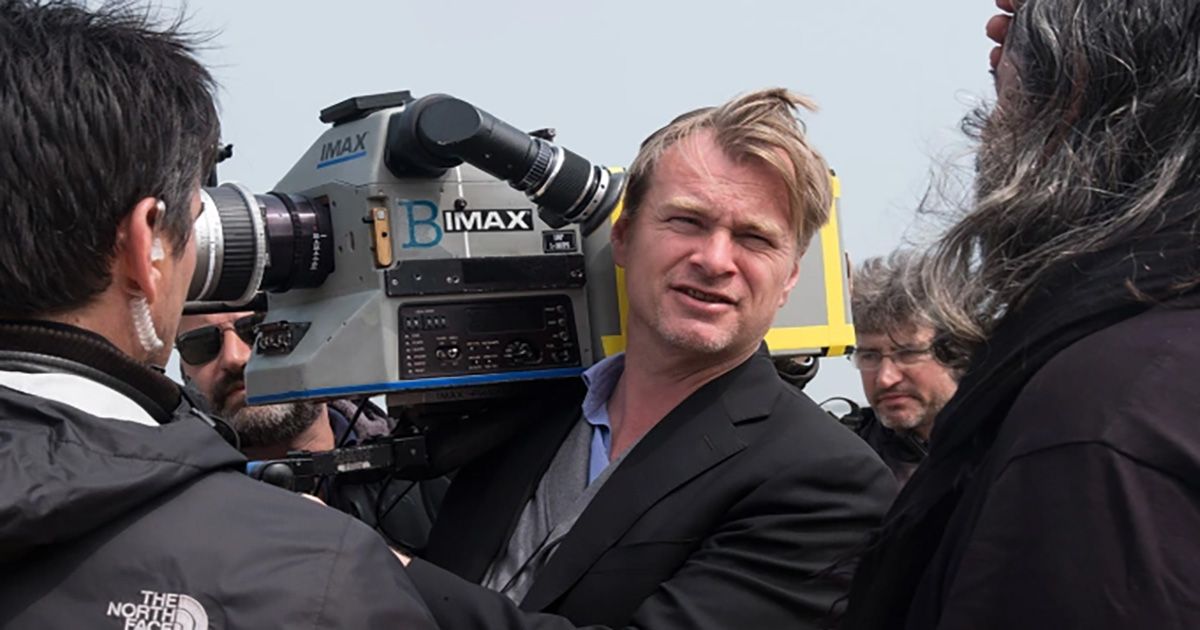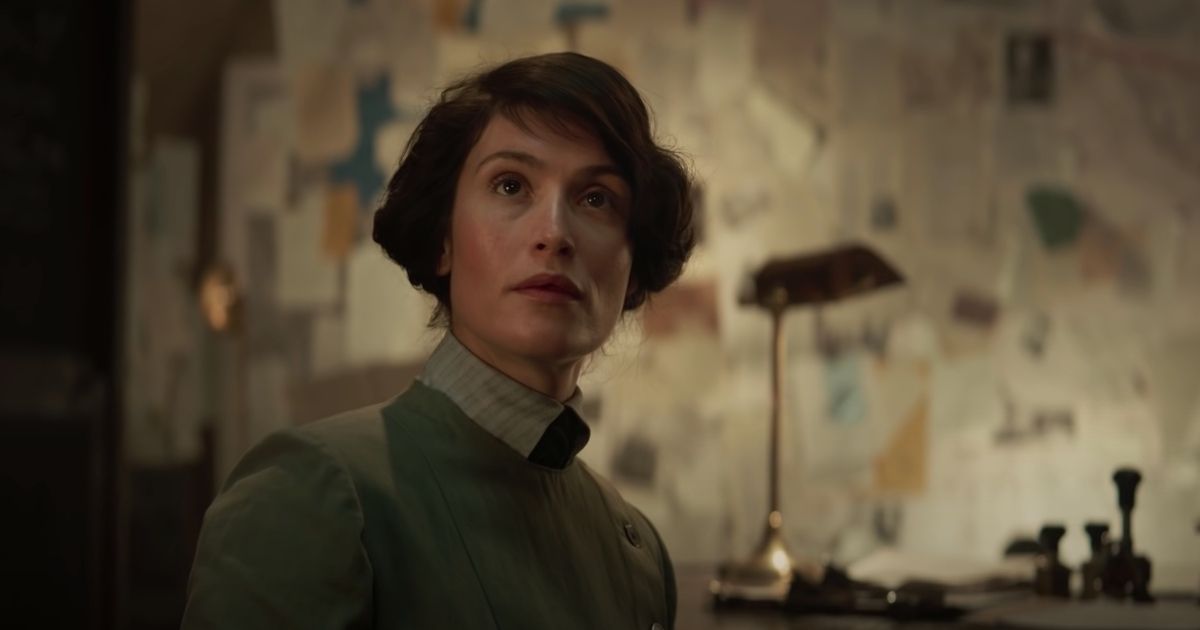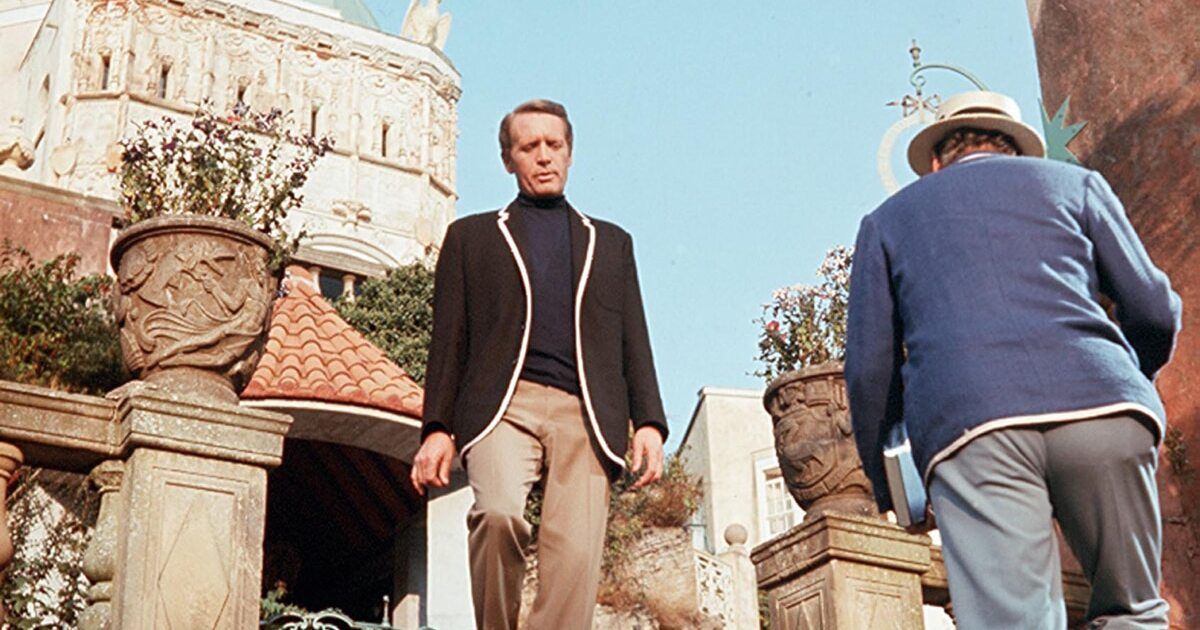In 1998, a young and still-unknown Christopher Nolan released Following, his black-and-white debut feature. The noir-tinged crime caper starred Jeremy Theobald as a struggling writer who becomes an apprentice to a small-time thief. Despite being made for a mere $6,000, Following introduced the world to a director brimming with ideas and style to spare. In the time since, Nolan has become one of the most celebrated directors working in the medium, whose big-budget epics often challenge as much as they entertain.
Memento was one of the first movies told almost entirely backwards; The Dark Knight Trilogy redefined what superhero movies could be; Inception was a stunningly-original sci-fi heist thriller; and Interstellar is a space epic that rivals only 2001: A Space Odyssey in scope and ambition. Every Christopher Nolan movie is an event, and each new film is more ambitious than the last. His next movie, Oppenheimer, for which Nolan and Kodak created their own unique film stock, looks to continue this trend.
Although Nolan is one of the few directors who has the enviable ability to direct whatever his heart desires, there are still a few projects that got away from him for one reason or another. Whether it was a change of heart or just bad timing, here are three unmade Christopher Nolan movies we’ll never get to see.
A Howard Hughes Biopic
After the one-two punch of Memento and Insomnia, Christopher Nolan was looking to harness his newly-earned popularity to get his dream project off the ground: a sprawling biography covering the life of eccentric billionaire pilot/filmmaker/socialite Howard Hughes. The director had long been obsessed with Hughes’ life – as have many filmmakers over the years – and spent more than a year working on the script, which he has often referred to as “one of the best things I ever wrote.”
Although the movie never made it past the script stage, Nolan did have someone in mind to inhabit the film’s complicated protagonist: Jim Carrey. Impressed by his acting in Man on the Moon, a biopic of the equally-eccentric comedian Andy Kaufman, Nolan was convinced that Carrey was the only person who could pull off the delicate role. The two met multiple times to discuss their respective visions for the film, and Nolan has all but implied that Carrey was on board.
Of course, another cinematic maverick had beat Nolan to the punch. In 2004, Martin Scorsese released The Aviator, his own big-budget biopic with Leonardo DiCaprio starring as Hughes. The massive success of Scorsese’s film ultimately forced Nolan to shelve his passion project.
But that doesn’t mean Nolan had completely abandoned Hughes. Though a movie will probably never be made, Nolan incorporated elements of his isolated and controversial figure when creating his version of Bruce Wayne for The Dark Knight Trilogy. And the unused script for the movie proved helpful when Nolan eventually decided to tackle Oppenheimer. In an interview with Total Film, Nolan reflected on the script:
When I wrote my Howard Hughes script, it was the first time I’d taken on a real-life figure, and I tried working from a book, and tried to find a structural approach that would give the experience of this guy’s life…I think having written the Howard Hughes script was very important to having the confidence to take this on, particularly structurally, and just knowing that if I could find the approach, then I would be able to just dive into the guy’s life.
The Keys to the Street
After scrapping his Howard Hughes biopic, Christopher Nolan briefly planned on directing an adaptation of Ruth Rendell’s twisty crime novel The Keys to the Street. The story centered around Mary Jago, a London woman who becomes embroiled in a series of murders committed by a serial killer known as “The Impaler.”
Fox Searchlight was keen on doing business with Nolan and immediately boarded the project. Nolan adapted the novel himself, and soon after signed (then) up-and-coming actress Gemma Arterton as Mary Jago.
Although Nolan was originally attached to direct, at some point during the scripting stage he decided to back out of directing duties. He found the story and tone of the novel too similar to Insomnia and Memento. And even though a Nolan-directed serial killer movie sounds awesome, dropping out of the project allowed him to direct Batman Begins, the first film in his soon-to-be revolutionary superhero trilogy.
Nolan has since given his blessing to any director wanting to take on Keys to the Street, but the script has been languishing in development hell ever since. This project may not be dead yet, but don’t expect Christopher Nolan to be the person behind the camera.
The Prisoner
The Prisoner was a popular British show from 1967 created by Patrick McGoohan. The limited 17-episode series starred McGoohan as a retired secret agent known only as Number Six, who is kidnapped and imprisoned in an idyllic paradise called The Village. The short-lived and uniquely-surreal spy series was wildly popular, and its poppy, psychedelic aesthetic would be a huge influence on future films of the era.
Christopher Nolan officially boarded a film adaptation of The Prisoner in 2006, intending to start production on the feature after wrapping up The Dark Knight. David Webb Peoples – who wrote Blade Runner, Unforgiven, and Twelve Monkeys – was working on a script for The Prisoner with his wife Janet, which Nolan was reportedly very pleased with.
Unfortunately, much like Nolan’s unmade Howard Hughes movie, someone else beat him to it. In 2009, a miniseries re-imagining of The Prisoner was released, starring Ian McKellen and Jim Caviezel as the leads. The show was met with lukewarm reactions and ultimately came and went without much fanfare. As a result, Nolan decided it was best to move on from his interpretation of the material. Which is a shame because a psychedelic James Bond-esque spy mystery from the mind of Christopher Nolan sounds like an absolute dream. Here’s hoping that this project eventually sees the light of day.
This story originally appeared on Movieweb



